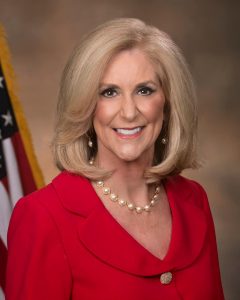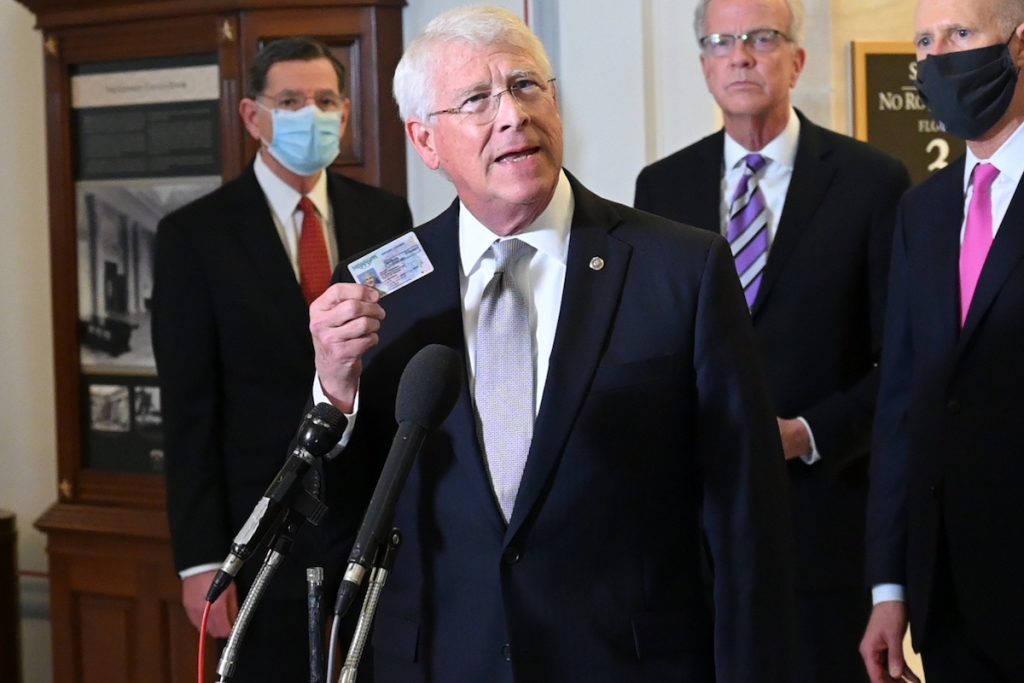Driver’s license suspensions over unpaid fines have long triggered a devastating domino effect on poor Americans, costing them not only their ability to commute, but their jobs and livelihood. But the 35 states that continue to enforce such penalties could find new reasons to reconsider if a bill that U.S. Sens. Roger Wicker, a Mississippi Republican, and Chris Coons, a Delaware Democrat, introduced today becomes law.
The Mississippi Department of Public Safety stopped suspending driver’s licenses over unpaid fines and fees in 2017, becoming one of the first states to do so. In 2018, Mississippi began reversing prior suspensions while waiving its $100 reinstatement fee. Supporters of the change note that
Sen. Wicker said today that he hopes the “Driving for Opportunity Act” will encourage other states to follow the Magnolia State’s lead. The legislation would “provide grants to States that do not suspend, revoke, or refuse to renew a driver’s license of a person or refuse to renew a registration of a motor vehicle for failure to pay a civil or criminal fine or fee,” its text says.
“Suspending driver’s licenses for unpaid fines and fees is counterproductive,” Wicker said in a statement announcing the bill. “Americans need access to vehicles to work and to care for their families. My home state of Mississippi rightly banned this practice in 2018. This legislation would encourage other states to follow our lead.”
Mississippi is one of just 15 states that has either completely or mostly stopped suspending licenses for nonpayment of fines alongside California, Georgia, Hawaii, Idaho, Illinois, Kentucky, Michigan, Montana, New York, Oregon, Utah, Virginia, West Virginia and Wyoming.
But 35 states continue the practice, affecting around 11 million people, according to data provided by Free to Drive, the coalition behind the proposed legislation. Proponents of the bill note that fine-based suspensions disproportionately impact the working poor.
A ‘Poverty Trap’
The state-level effort at reform began in earnest in 2017. Last year, Hawaii, Oregon, Virginia, West Virginia and New York became the most recent states to join the ranks of those that no longer suspend licenses for most fines. Georgia, Michigan and New York still suspend licenses in some specific cases.
Free to Drive, an ideologically mixed coalition of more than 100 organizations across the country, spearheaded the effort behind the “Driving for Opportunity Act.” The organization has interactive maps on its website that shows the status of suspension practices in each state.
“The suspension of driver’s licenses for issues that are not related to public safety, such as unpaid court fines or fees, missed child support payments, or drug possession charges that are unrelated to driving under the influence, disproportionately affects poorer communities and black and brown drivers,” David LaBahn, president and CEO of the Association of Prosecuting Attorneys, which is part of Free to Drive, said in a statement the coalition released last July.
“This poverty trap takes away one’s means to provide for oneself and one’s family by taking away the most common method of transportation—for reasons that are entirely unrelated to road safety and public wellbeing. This Act addresses the crucial issue of driver’s license suspensions that do not support a public safety purpose.”
The Driving for Opportunity Act’s sponsors in Congress first introduced it in the House and Senate last July, but the legislation went nowhere before dying by session’s end as lawmakers focused on COVID-19 relief efforts and the 2020 election.
Attorney General Fitch Supports Bill
At the time of the bill’s initial introduction, Mississippi Attorney General Lynn Fitch joined attorneys general in 23 other states in a letter to members of Congress, urging them to pass it because “there are better ways to support law and order in our communities than to punish people for their poverty.”
“These suspensions fall disproportionately on those who are most severely impacted by the lack of a driver’s license, particularly the poor, and exacerbate the very issues that may have caused the failure to pay in the first place,” the letter reads. “Without a license or access to a strong system of public transportation, these individuals lack the means to get to their jobs; to bring their children to child care; and to get groceries, medical care, and other necessities in the most cost-effective way. They end up in a loop of higher expenses and lower income, and potentially steeper fines.”

Free to Drive shares stories of people caught up in the fine-suspension trap, such as New Orleans resident Izell Mayes, whose first traffic ticket in 1989 began the journey that led to the suspension of his driver’s license. That triggered a domino effect that made driving to work a terrifying experience and, over the course of decades, he had racked up more than $23,000 in fines and penalties that he could not pay.
NOLA.com reported in 2017 that Mayes had “resigned himself to the risk of imprisonment every time he got behind the wheel” until a pilot program in the city helped him and 1,200 other people, who owed $8,000 in fines on average, get their debts reduced in exchange for community service. Mayes ultimately reduced his total fines to just $9. Others in the Bayou State have not had such opportunities, though, along with millions in the other 34 states that continue to enforce such suspensions.
“Driver’s licenses enable millions of Americans to travel to and from work, their children’s schools, doctor’s appointments, and places of worship,” Sen. Coons said in his statement with Sen. Wicker today. “At a time when the COVID-19 pandemic has made it even harder for Americans to pay their bills and care for their families, taking away someone’s driver’s license can make it nearly impossible to hold down a job and therefore pay back their debts.
“The Driving for Opportunity Act would end this practice that traps our most vulnerable populations in a cycle of debt while lifting an unnecessary and counterproductive responsibility from our police departments at a time when they are already carrying a heavy burden.”










